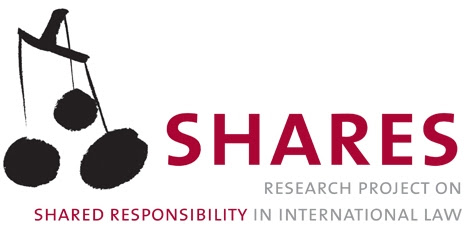Posted by: Nollkaemper André
There is a wide diversity of actions by which states can aid or assist other states in the commission of an internationally wrongful act. Well known examples, listed in the Commentary to the ILC Articles on Responsibility of States for Internationally Wrongful Acts, include providing arms, funding or training, or other material support to foreign states that use such recourses in the commission of a wrong. The Independent reports a policy that hitherto has not been widely documented; stripping people of their nationality. Also Lawfare has blogged on the policy.
The reported facts suggest that since 2010, the United Kingdom (UK) Home Secretary has revoked the passports of 16 individuals, many of whom were alleged of having links to terrorist or militant groups. The legal basis for this was a 2002 law, enabling the Home Secretary to remove the citizenship of any dual nationals, if doing so would be in the public interest. The Bureau of Investigative Journalism has been able to establish that some of these people were subsequently killed by American drone attacks.
The facts of this case suggest that retaining a western nationality may offer a shield of protection. They also suggest that the likelihood that a person is protected by nationality depends on strange coincidences. Since the UK can deprive only dual nationals of their nationality, nationals of states that do allow for double nationality (such as Pakistan), and who retain their nationality upon acquiring British nationality, are worse off than nationals of states (e.g. India) that do not allow double nationality. The latter will have to give up their nationality upon acquiring British nationality, and will then be protected against deprivation of nationality.
Although the facts are sparse and do not allow firm conclusions, they raise an interesting question: would stripping a person from her or his nationality make the UK complicit for a subsequent wrongful act of extra-judicial killing of that person? Assuming drone attacks are illegal, that in at least certain circumstances now can be accepted as a given, the answer to that question depends on two further questions. One is whether the UK would have had knowledge of the drone attacks that were to come. The very unlikelihood that this question ever will be answered, casts great doubt over the practical utility of the principle of complicity in such security cases. This is a matter of executive policy, shrouded in secrecy. The Independent cites a spokesperson of the UK government who, asked whether intelligence was provided to foreign governments, said: “We don’t comment on intelligence issues. Drone strikes are a matter for the states concerned.”
I add that if the UK would have had knowledge of the events that might follow, the deprivation of nationality also would bring the state in breach of its human rights obligations, notably the right to life, quite apart from any question of complicity under general international law.
The second question is whether stripping a person of its nationality would have made it materially easier for the United States (US) to subject a person to a lethal drone attack. That is: was it, in the ILC’s terms ‘clearly linked to the subsequent wrongful conduct’ (par. 5 of the Commentary to Art. 16). Though we mostly think of this condition in material terms (weapons, funding etc.), in the events described by The Independent, this condition may well be satisfied without material support. A drone attack that would kill a UK national would likely lead to political complications that would scare the US away from the attack. The UK government then would have a right to ask for explanations, and perhaps even would bring a claim. It may not have much political interest in doing so, but it would be under considerable (domestic and international) pressure to make use of that right. This would risk the implementation of the US drones policy. That very prospect might make the US reluctant to strike with drones as long as a person would have the UK nationality.
The upshot of this scenario is that stripping persons of their nationality before they are killed by another state may limit political risks and costs for the wrongdoing state, and that such immaterial support may be as helpful for that state as the classic complicity arsenal of weapons, funding or information.
